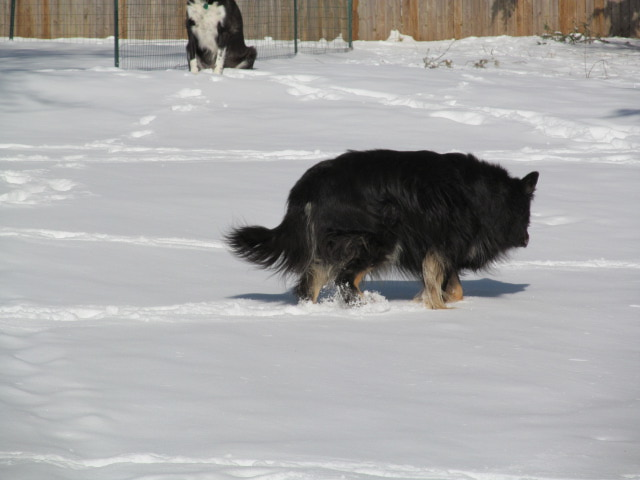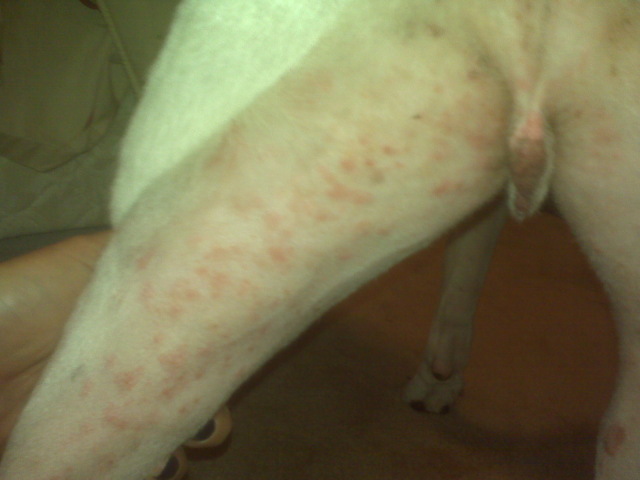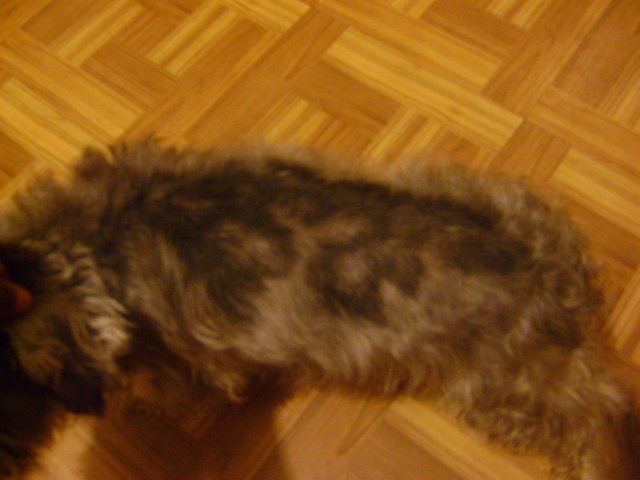QuestionI have two questions:
First my boston terrier(2 years old) has been sneezing continously, but
does not appear sick. Occasionally he gets what seems to be a reverse
sneeze, sounding like an asthma attack. What would you recommend?
Secondly, I have had to take him monthly to have his anal glands
expressed. They leak regularly. Would you recommend removing them?
AnswerHi Annette,
There are many upper respiratory viruses and bacteria that can cause sneezing in dogs.
The good news is that these upper respiratory infections are usually self-limiting in otherwise healthy adult dogs. In other words, the symptoms should be mild and pass quickly.
There are, however, many things that may cause sneezing in dogs. Among them would be foreign bodies and allergies. If your dog's signs get worse (lethargy, not eating) or you see mucus or yellow-green discharge, contact your veterinarian.
"Reverse sneezing" is actually a misnomer, it has nothing to do with actual sneezing. A reverse sneezing episode can last for several seconds to a minute.
It is thought that the reverse sneeze is a spasm caused by a number of irritants, including dust and pollen, or household chemicals. Moreover, some dogs can launch an episode after eating, drinking or running around, or while pulling on the leash.
The predisposition to this is thought to be hereditary, particularly in smaller breeds because of the decreased diameter of their tracheas. You can help your dog by soothingly stroking the upper throat area to encourage relaxation and dilation of the trachea. Reverse sneezing appears a lot worse than it is, generally posing no health threats whatsoever. Typically, an episode of reverse sneezing will end soon on its own.
I would discuss removing the anal glands with your vet. Your dog is definitely having a chronic problem, you should just make yourself aware of the risks of surgery. Anal sac removal is considered a relatively simple surgery by most board certified surgery specialists. If this procedure is to be done it is generally recommend that a specialist (a veterinarian with extensive experience with anal sacculectomy) perform it.
As with any surgery there are potential risks and complications to be aware of. Trauma to the anal sphincter muscle is a possibility. If too much damage occurs there is the potential for poor sphincter tone. The anus may not be able to retain stool and a fecal incontinence may develop. This risk is higher when both anal glands are removed than if only one is removed.
Another potential risk is not removing the entire sac. If even a tiny amount of anal sac tissue remains in the surgical site it has the potential to continue secreting anal sac fluid. This will build up in the surgical site and result in an abscess and possibly a persistent draining tract leading from the sac remnant to the skin surface. This is called a fistula. The surgeon will have to enter the non healing area and find the tag of anal sac tissue and remove it for a successful outcome to be achieved.
Have you tried controlling your dog's anal sac condition with diet? High fiber diets have been shown to help prevent anal sac disease in at-risk dogs. It might be worth trying before resulting to surgery. Ask your vet for a diet suited to your dog's needs.
I hope I've been a help. Best of luck,
Patti

 My 1 year old Yorktese is paper trained but goes pee in the middle of the kitchen floor
Question
QUESTION: I have a wonderful 1 year old
My 1 year old Yorktese is paper trained but goes pee in the middle of the kitchen floor
Question
QUESTION: I have a wonderful 1 year old
 Old dog, old owner, grooming issues
Question
Jessis
I have a 13-yr-old German shephe
Old dog, old owner, grooming issues
Question
Jessis
I have a 13-yr-old German shephe
 Large dog with possible poison ivy
Question
Guero
My poor dog has led a rough life to date
Large dog with possible poison ivy
Question
Guero
My poor dog has led a rough life to date
 Thining hair on back/back hair darkening
Question
Dogs Back
Please Help!
I have a 4 year miniatu
Thining hair on back/back hair darkening
Question
Dogs Back
Please Help!
I have a 4 year miniatu
 Dog Breed.
Question
Recent photo this week
Hello,
I saw that you
Dog Breed.
Question
Recent photo this week
Hello,
I saw that you